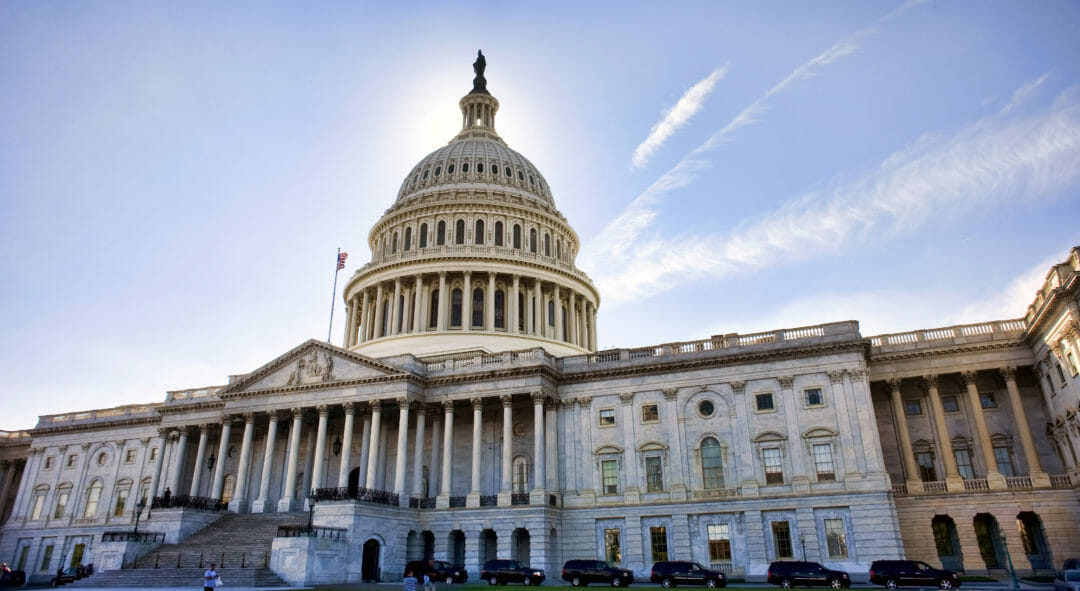The big tech antitrust committee, hosted by the US House of Representatives, scrutinised the business practices of four of today’s most prominent technology organisations, with congress accusing their CEOs of predatory, anti-competition practices, and theft of digital content.
The hearing, which lasted five and a half hours, ended with House Antitrust Subcommittee Chairman David Cicilline stating that the companies “have monopoly power”, and “need to be properly regulated and held accountable.”
Cicilline added: “We need to ensure the antitrust laws first written more than a century ago work in the digital age.”
Here’s what each big tech chief said when testifying during the hearing:
Sundar Pichai, CEO of Alphabet
Alphabet chief Sundar Pichai faced accusations from Congress of abusing Google‘s position as web gateway, with Committee Chairman Cicilline stating it had changed “from a turnstile to the rest of the web to a walled garden”, as well as abandoning work with the Pentagon and working with China.
Wipro selects Google Cloud to accelerate digital transformation
In response to the first accusation, upon Cicilline referencing an internal memo allegedly revealing Google employees to state that other websites had “too much traffic”, Pichai denied familiarity with the document, but claimed that vertical search for specific items on travel and retail sites “validates the competition that we see”.
As for abandoning collaboration with the Pentagon in favour of work in China, Pichai stated: “Compared to our peers it [Google’s work in China] is very, very limited in nature.”
In addition, Alphabet’s CEO was accused of stole content from companies such as Yelp, to which Pichai responded: “When I run the company, I’m really focused on giving users what they want. we conduct ourselves to the highest standards.”
Jeff Bezos, CEO of Amazon
Amazon chief Jeff Bezos, upon taking to the virtual stand in his first ever public hearing, faced allegations of using third-party data to make sales decisions, following an investigation by the Wall Street Journal.
In response, Bezos stated that he could not guarantee that his employees had not used the data of third-party sellers to benefit Amazon.
However, he defended big tech practices in general by stating that they have a unique ability to complete complex tasks.
“I don’t care how good an entrepreneur you are,” Bezos said in a written statement. “You’re not going to build an all-fiber Boeing 787 in your garage.”
Tim Cook, CEO of Apple
Apple CEO Tim Cook had the least amount of questions thrown at him during the hearing, with a main accusation from Congress regarding the App Store’s removal of screen time and parental control apps after launching its own screen time solution on iOS 12.
Apple, Microsoft and Google ranked most valuable technology brands
In response, Cook reiterated a defence previously made last year, expressing concern over the “privacy and security of kids”.
“The technology that was being used at that time was called MDM, and it had the ability to sort of take over the kid’s screen, and a third party could could see it,” Cook continued. “So we were worried about their safety.”
When testifying against anti-competition practices in general, which in Apple’s case included making App Store rules unavailable to developers and discrimination towards smaller developers, Cook responded: “We care deeply about privacy and quality. We look at every app, but the rules apply evenly to everyone.”
Mark Zuckerberg, CEO of Facebook
During his parts in the hearing, Facebook chief Mark Zuckerberg defended the acquisitions of Instagram and WhatsApp, among other current subsidiaries, by stating that Zuckerberg viewed Instagram as both a competitor and a “compliment” to Facebook’s services.
The Facebook CEO was also accused of stealing ideas from rival platforms such as Snapchat and TikTok, to which he responded: “We’ve certainly adapted features that others have led in”, before stating that he didn’t know how many companies Facebook ended up “copying”, as a congress member worded it.
Another key testification given by Zuckerberg was that he has “long believed that the nature of our industry is that someday a product will replace Facebook”, also adding “I want us to be the ones that build it, because if we don’t, someone else will.”
Zuckerberg, in addition to defending Facebook’s practices, found himself defending those of Twitter as well, specifically the rival social media platform banning Donald Trump Jr over an allegedly harmful post relating to Covid-19.
While initially stating it was difficult to speak about another company, Facebook’s CEO said that his company “did prohibit content that will lead to imminent risk of harm”.
Twitter accounts hacked to promote ‘CryptoForHealth’ Covid-19 scam
Going forward with big tech
Upon conclusion of the big tech antitrust hearing, Dries Buytaert, founder of Drupal and CTO of Acquia, commented: “Large internet companies have been enablers of community, transparency and positive change, but also of abuse, hate speech, bullying, misinformation, data breaches, government manipulation and more.
“These powerful corporations have built empires by exchanging free services for users’ data and hiding their practices behind difficult-to-understand terms of service and privacy policies.
“Technological change is a wonderful thing, as it can bring unprecedented improvements to billions around the globe. As a technologist, I believe in the power of the web to improve the world for many, but we also need to make sure that technology disruption is positive for all of us.
“Open web and privacy advocates have seen these problems coming for a long time. I’m glad more and more people are waking up to this, and I’m hopeful that increased regulation may fix some of the web’s current problems and ensure that we keep building an open, safe and decentralised web for decades and generations to come.”










